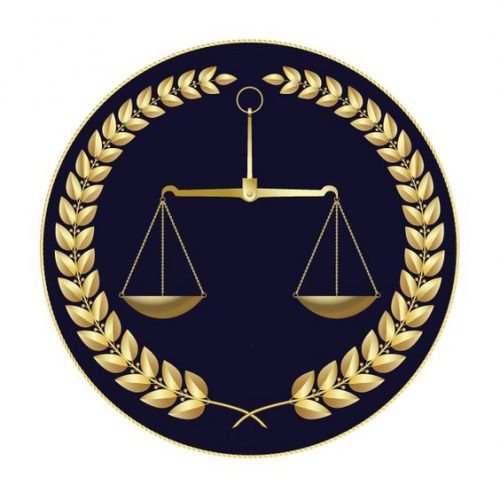Best ADR Mediation & Arbitration Lawyers in Bolivia
Share your needs with us, get contacted by law firms.
Free. Takes 2 min.
Or refine your search by selecting a city:
List of the best lawyers in Bolivia
About ADR Mediation & Arbitration Law in Bolivia
Alternative Dispute Resolution (ADR) mechanisms, including mediation and arbitration, are increasingly being recognized and utilized in Bolivia as effective means to settle disputes outside traditional court systems. These methods offer parties a faster, usually more cost-effective, and flexible approach to resolving conflicts, particularly in commercial, civil, and international matters. Mediation focuses on facilitating negotiation between disputing parties to reach a mutually acceptable solution, while arbitration involves a more formal process where an arbitrator makes binding decisions. Bolivia's legal framework supports both approaches, aligning with international standards, notably guided by the UNCITRAL Model Law on International Commercial Arbitration.
Why You May Need a Lawyer
Engaging legal counsel for ADR processes can be crucial for several reasons:
- Complex Dispute Involvement: Legal complexities often underpin disputes requiring mediation or arbitration, especially those involving multiple jurisdictions or significant financial interests.
- Drafting and Reviewing Agreements: Lawyers ensure the terms of arbitration or mediation agreements meet legal standards and protect their client's interests.
- Representation and Advocacy: Lawyers advocate for their client's positions effectively, be it in presenting evidence during arbitration or negotiating terms during mediation.
- Enforcement of Outcomes: Ensuring an arbitrator's decision or a mediated agreement is enforceable in Bolivia or internationally often needs legal expertise.
- Conflict of Interest Management: Lawyers help in identifying and managing any potential conflicts of interest that may arise during the ADR process.
In summary, involving a lawyer can lead to a smoother, more legally sound ADR process, minimizing potential future disputes.
Local Laws Overview
Bolivia has developed a supportive legal environment for ADR inspired partly by international acts such as the UNCITRAL. Relevant legislation includes the Law on Conciliation and Arbitration, which outlines how ADR methods can be used effectively. Notably, there are regulations for the enforcement of arbitration awards and procedural rules, ensuring fairness and impartiality in the arbitration process. The Bolivian government frequently collaborates with international ADR organizations to enhance its legal framework continuously, keeping it up to date with global best practices.
Frequently Asked Questions
What is the difference between mediation and arbitration?
Mediation involves a neutral third-party facilitating discussions between disputing parties to help reach a mutual agreement. Arbitration, on the other hand, involves one or more arbitrators who hear both sides and make a binding decision on the dispute.
Is arbitration legally binding in Bolivia?
Yes, arbitration decisions are legally binding in Bolivia, and the country's legal system provides for mechanisms to enforce these decisions.
Can parties choose their arbitrator or mediator?
Yes, parties typically have the freedom to select their arbitrators or mediators, often based on expertise and neutrality.
Are ADR processes public in Bolivia?
No, ADR processes like mediation and arbitration are private, which helps maintain confidentiality for the involved parties.
How long does an arbitration process take in Bolivia?
The duration can vary based on the complexity of the case, but arbitration is generally a quicker alternative to litigation.
What types of disputes are commonly resolved through ADR in Bolivia?
Disputes related to commercial contracts, employment issues, construction projects, and international trade are frequently resolved through ADR in Bolivia.
Do I need a lawyer for mediation?
While having a lawyer is not mandatory, it can be beneficial to ensure that you fully understand the negotiation process and your rights.
Can ADR decisions be appealed in Bolivia?
Arbitration decisions are generally final and binding, with limited grounds for appeal, usually involving procedural errors or issues of jurisdiction.
Is ADR cost-effective compared to litigation?
Yes, ADR is typically more cost-effective than litigation due to its quicker, less formal nature, and reduced legal fees.
Where can ADR proceedings be conducted in Bolivia?
ADR proceedings can be conducted anywhere mutually agreed upon by the parties, including private offices or facilities provided by an arbitration institution.
Additional Resources
Below are some resources and organizations that can be helpful for those seeking guidance or services related to ADR Mediation & Arbitration in Bolivia:
- Chamber of Industry and Commerce of Bolivia (CAINCO): This organization provides ADR services and resources to help businesses effectively resolve disputes.
- Ministry of Justice: The Bolivian government body responsible for legal and judicial matters can offer guidance and information regarding ADR processes.
- International Court of Arbitration: Known for handling international disputes, this court provides guidelines that align with Bolivian ADR practices.
- Centro de Conciliación y Arbitraje Nacional e Internacional (CENCINAI): Offers both regional and international ADR services, boosting accessibility to ADR mechanisms within the country.
Next Steps
Should you require legal assistance in ADR Mediation & Arbitration in Bolivia, consider taking the following steps:
- Identify Your Needs: Understand the nature and scope of your dispute and decide whether mediation or arbitration is most suitable.
- Consult with a Lawyer: Seek a lawyer experienced in ADR practices in Bolivia to navigate legal complexities and provide representation, if necessary.
- Research: Familiarize yourself with Bolivia’s ADR laws, either through your lawyer or available legal resources, to better understand your rights and options.
- Choose a Venue: Decide on a suitable venue, which could be a regional ADR center or an international organization, depending on the nature of your dispute.
- Initiate Proceedings: Work with your lawyer to start the ADR process, ensuring that documentation and agreements are in order.
- Engage in the Process: Participate actively in mediation discussions or arbitration hearings, with the aim of reaching a resolution aligned with your interests.
- Follow-up: Ensure enforcement of the ADR outcome, seeking legal recourse if facilitation of decisions or agreements is necessary.
Lawzana helps you find the best lawyers and law firms in Bolivia through a curated and pre-screened list of qualified legal professionals. Our platform offers rankings and detailed profiles of attorneys and law firms, allowing you to compare based on practice areas, including ADR Mediation & Arbitration , experience, and client feedback.
Each profile includes a description of the firm's areas of practice, client reviews, team members and partners, year of establishment, spoken languages, office locations, contact information, social media presence, and any published articles or resources. Most firms on our platform speak English and are experienced in both local and international legal matters.
Get a quote from top-rated law firms in Bolivia — quickly, securely, and without unnecessary hassle.
Disclaimer:
The information provided on this page is for general informational purposes only and does not constitute legal advice. While we strive to ensure the accuracy and relevance of the content, legal information may change over time, and interpretations of the law can vary. You should always consult with a qualified legal professional for advice specific to your situation.
We disclaim all liability for actions taken or not taken based on the content of this page. If you believe any information is incorrect or outdated, please contact us, and we will review and update it where appropriate.
Browse adr mediation & arbitration law firms by city in Bolivia
Refine your search by selecting a city.













